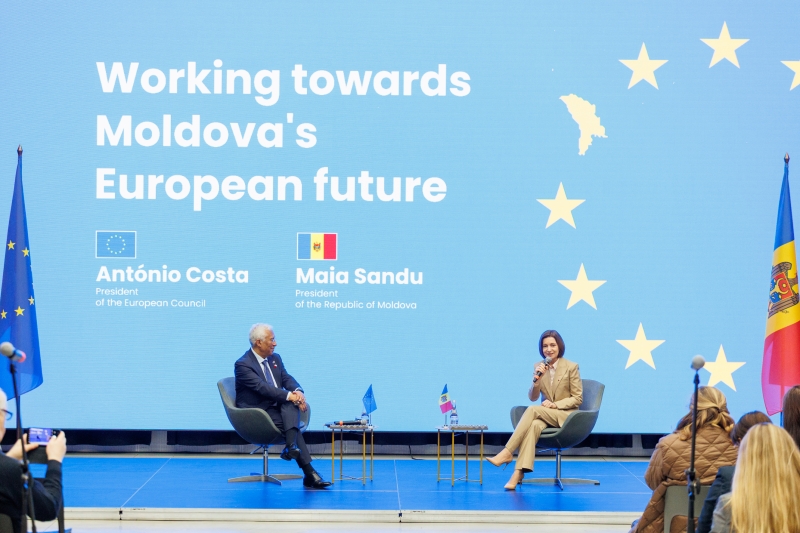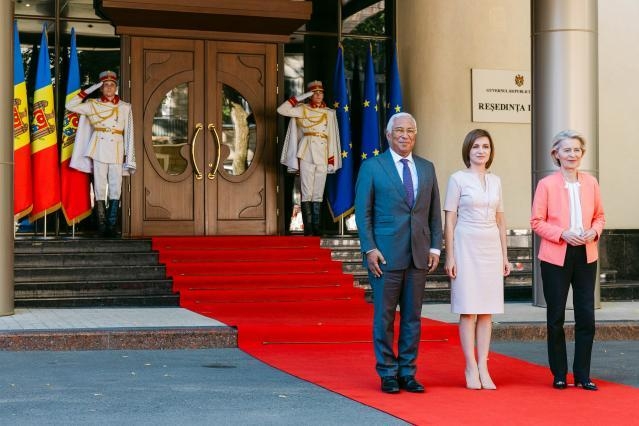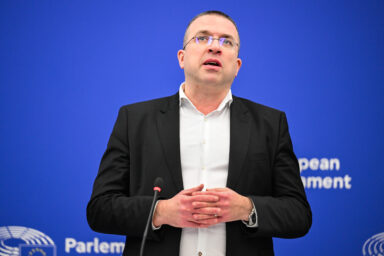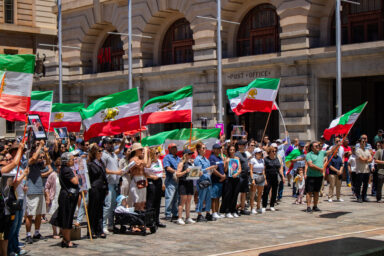First ever EU-Moldova summit on Friday, 4 July, was attended by Ursula von der Leyen, President of the European Commission, and António Costa, President of the European Council. EU leaders affirmed that Moldova now has historic opportunity to make a “huge progress”.
“Thank you for being here with a clear message from all Member States that Moldova’s future lies in the European Union.” This was the opening remark of Moldova’s president Maia Sandu at the beginning of the summit. EU leaders reiterated their unwavering commitment to Moldova’s sovereignty, security and resilience, in light of the consequences of the Russia’s ongoing war of aggression against Ukraine and Russia’s continued hybrid attacks against Moldova.
Together with Ukraine, or…?
So far, Moldova’s application to become EU member has been processed simultaneously alongside that of Kyiv. Some current EU members, however, have signalled that Ukraine is not ready yet. Hungary’ Prime Minister Viktor Orbán, who retains close ties with Russia, has repeatedly vowed to veto Ukraine’s (and thus also Moldova’s) accession to the EU.
Any delays to the process (of accession to the EU) would cost the European Union credibility with countries that share the same values – Cristina Gherasimov, Moldova’s Deputy Prime Minister
Moldova’s political elite insists that accession to the EU should be merit-based and that their country has made a big progress recently. That applies to strengthening the rule of law and fundamental rights, as well as to the fight against organised crime – areas that are typically problematic also in other Eastern European candidate states.
Any delays to the process (of accession to the EU) would cost the European Union credibility with countries that share the same values and strive for strengthening rather than weakening democracy,” said Cristina Gherasimov, Moldova’s Deputy Prime Minister.
Moldova was granted candidate status in June 2022, shortly after having submitted application to the EU. Accession negotiations were formally opened in June 2024. To help support Moldova’s integration into the EU and its reforms, European Union is providing up to €1.9 billion for the period from 2025 to 2027, through the new Moldova Growth Plan.
You might be interested
Population split in half
Measured by the attitude towards EU, Moldovan society remains deeply fractured. The October 2024 referendum on membership in the EU was approved with a razor thin majority of 50.4 percent – the difference between “yes” and “no” was mere 10,000 votes. Given this, results of parliamentary elections that will be held in late September 2025 are highly unpredictable.

Republic of Moldova is a tiny Eastern European country with some 2.5 million inhabitants. Measured by GDP per capita, it belongs among poorest European nations. Part of its internationally recognized territory, breakaway province Transnistria, has its own administration independent on Chișinău and retains close relations with Moscow.










